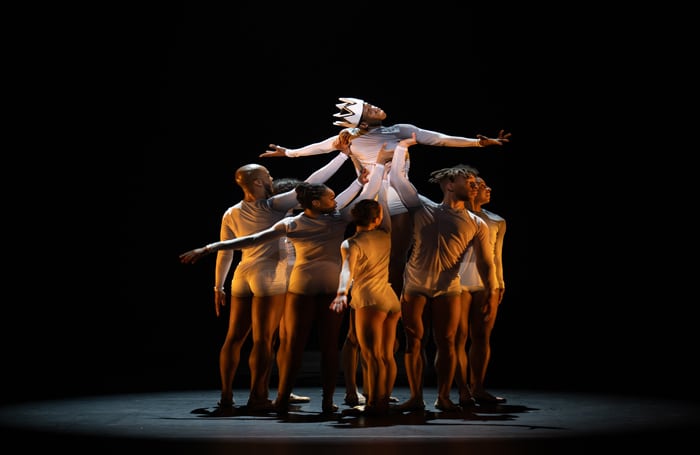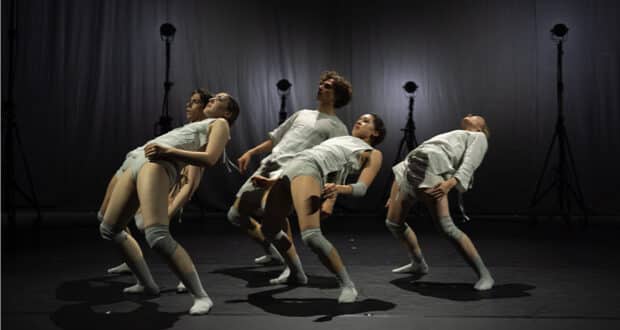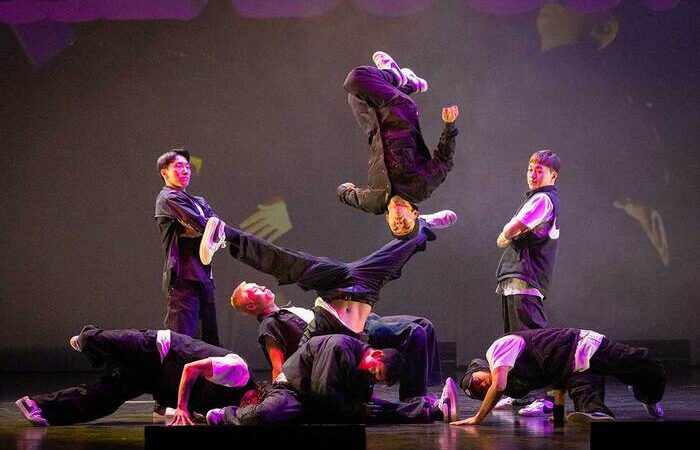Ballet Black, Barbican Centre
Everything is change, nothing in life stays the same. This is doubly true for the mayflower-like professional lives of dancers, and the turnover of a company’s members. Nobody, no matter how beloved is immune to this, not even Ballet Black.
Cassa Pancho’s mold-breaking dance troupe is turning 23. A full adult’s lifetime of transforming the dance world, obliterating boundaries, launching careers, and enthralling audiences. So when a new crop of dancers are ready, us critics, and ballet heads flock in great and rustling multitudes. Five new dancers, in a company of nine, is a big change. Additionally, pieces from two of the dance world’s up-and-coming choreographers mean the night has a fresh, Bambi-legs level of excitement and jitters.
First Sophie Laplane (Choreographer in Residence at Scottish Ballet) If At First romps onto the stage. Jessica Cabassa has the dancers in shades of white and grey, with little chiffon cloaks covering one side of their torsos. The piece is a crowning glory. No, quite literally styrofoam crowns are fought over, thrust from head to head and crushed between trembling fingers. Rocketing between more classic duets and trios to Ludwig von Beethoven’s Eroica symphony, a musical crunch blasts us into original scores by Tom Harrold and chaotic group sections. Leaping, frantic and fast-paced, never allowing us to examine too heavily, birds of emotion and energy flitting around the stage. The blurb mentions Jean-Michel Basquiat’s painting Eroica for the crown reference and an overall theme of highlighting everyday heroes. But like the way with blurbs, unseen by the vast majority of the audience, and not particularly visible in the piece. I got the joy and competition of childhood, squabbling over toys, and crowns, playing at knights, and ladies. Despite being well danced (Especially Acaoã de Castro and Bhungane Mehlomakulu) the piece lacks much-needed focus and cohesiveness.
Luckily from the hubbub and confusion of If At First the second act and Mthuthuzeli November’s piece The Waiting Game is crystal clear. Created and then somewhat lost amidst the great hand wash of 2020, it has been revived, and expanded by the company. The fact that November is also a senior artist within the company is a worry (dancing and directing/choreographing normally gets my nails into the coffee table) but in some rare cases, it seems to work. Ebony Thomas is our dynamic lead and stands out among the company for his seemingly unlimited verve. The only negative is that the score is prerecorded dialogue from the dancers themselves, who are by no means voice actors. Nevertheless, this collection of voices in a range of languages discusses topics from the every day to deeply personal. Within the theme of work, and lives grinding normality, the first section has a Kafka-esp feel about it, as Thomas and the corps de ballet throw themselves through an illuminated screen box and door that is careering around the stage. Clambering up on it, Thomas is wheeling around, the metaphor of a door once opened a little heavy-handed but as I said, nice and clear. After this tooing and froing, we are treated to what I can only describe as ballet does Cabaret, or Can Can, or Moulin Rouge. An amusing, arresting and assertive jazz section, complete with sequinned jackets and shaking splayed hands. Showing the range, sense of humour, and physical flexibility of BB, this piece is about doubt, life and work and is a multifaceted diamond in an evening somewhat oddly cut.
Keep an eye on this most imaginative company’s next shows, click here!



